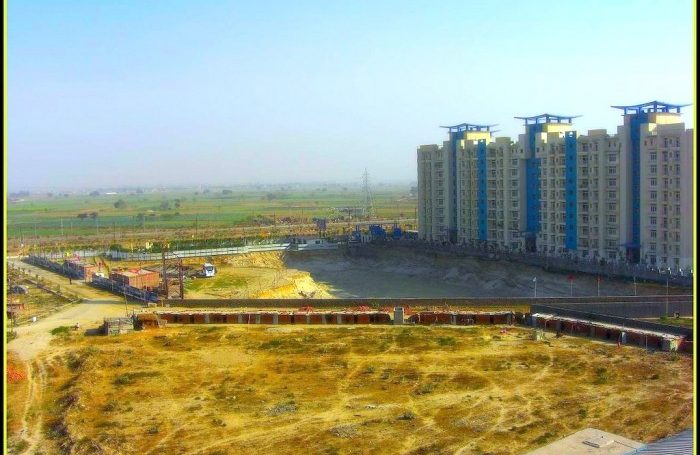
It is now widely accepted in development economics that since the industrial revolution, every late-industrialising country has ‘caught-up’ to Britain through state-led development. However, the question of the role of the state in nurturing economic development remains one of the key debates among scholars in the political economy of development. Coined by Chalmers Johnson with reference to Japan, and later applied to all of the ‘newly-industrialising countries’ of East Asia in the 1980s and 90s, the term ‘developmental state’ conceptualises a state that fosters economic development through industrial policy and regulation.
As Laura Routley (2014) describes, there is also much debate about how to define a developmental state. However, what interests me in this particular post is not disputes over the characteristics of a developmental state but what analytical purchase the concept has for analysing state responses to globalisation—particularly in the wake of the destructive ‘lost decades’ of neoliberal structural adjustment. In other words, what relevance does the ‘East Asian model’ of state-led development have today beyond East Asia—for developmental strategies in Asia, Africa and Latin America?
This question motivates the Developmental States Beyond East Asia workshop that will be held at Newcastle University in June of this year. Convened by myself and Jewellord Nem Singh, and organised in cooperation with the School of Geography, Politics and Sociology and the Development Politics Specialist Group of the Political Science Association, the workshop will bring together senior, mid-level, and early career academics and practitioners from a variety of sub-disciplines in the social sciences to explore the role of distinctive historical conditions, political legacies, and past state choices in spurring elites to pursue developmental imperatives. We will also consider the possibility of ‘democratic developmental states’, the role of ‘transformational social policy’ and the value of ‘new structural economics’ as advocated by Justin Lin in fostering structural transformation in Africa.
With regard to sub-Saharan Africa, my own area of interest, the applicability of the developmental state concept was first discussed by Thandika Mkandawire, who saw the potential of the idea to counter the vilification of the African state over previous decades. Today, Ethiopia, Botswana, Rwanda, and other states are variously analysed with reference to a variety of developmental strategies that make use of natural resource exploitation, alternative forms of financing development, pro-poor poverty reduction and social programmes, the development of service sectors (such as tourism, ICT, construction and real estate), new industrial planning based on developing new comparative advantages, and/or new forms of incentivisation and protection for infant industries.
The ability of any state to undergo a structural transformation and spark industrial growth is limited by the conditions of the current moment. East Asian states took advantage of unique features of a particular historical conjuncture and their experiences cannot be easily replicated elsewhere—particularly in African states weakened for decades by international financial institutions to the point they can hardly contribute meaningfully to nurturing capitalist development. Two problems emerge for developmental states in Africa. Firstly, the specificity of the historical context in which these events occurred in East Asia no longer exists. Secondly, as Ohno and Ohno argue, each country in East Asia developed by following somewhat different development strategies. My own work focuses specifically on the potential of old and new oil & gas producers in Africa to become ‘petro-developmental states’—particularly looking at oil-backed development in Angola and Nigeria.
In Latin America, the concept of ‘new developmentalism’ has been used to describe and explain the logic of state intervention, which has guided left-leaning governments in their responses to the new opportunities offered by the now-waning commodities boom and recovery from the 2008 financial crisis. As in the cases of Brazil and Chile, new developmentalism has taken the form of neostructuralism—an alternative policy trajectory to neoliberalism involving more state regulation and development planning to achieve inclusive economic growth with emphases on building the export capacity of smaller firms, broader social protection mechanisms especially for the poor, and recognition of social cohesion and citizenship rights as fundamental to achieving growth with equity. While African states have attempted similar strategies of intervention, they have not shared the goal of inclusive growth. This difference may explain why a recent UNDP report has found that Latin America and Africa have been going in different directions in terms of national income inequality. Ultimately, this difference represents an enormous challenge for potential developmental states in Africa. However, it may also represent an opening for national civil society to take a larger role in shaping their respective countries’ development trajectories.
The ‘Developmental States Beyond East Asia’ workshop will be held June 5, 2015 at Newcastle University and features keynote addresses from Professor James Putzel (London School of Economics) and David Booth (Overseas Development Institute). The Call for Papers is open until March 30, 2015. More details can be found here.
Further Reading on E-International Relations
- Science, Technology and Security in the Middle East
- A Rationale for Pluralism: The Rural, Remote Peasant
- Opinion – The Unintended Consequences of Foreign Aid Bypass
- Development, Central Banks and the International Monetary System
- Opinion – The Hypocrisy of the UK Government’s Plans for Girl’s Education in the Global South
- Contested Multilateralism as Credible Signalling: Why the AIIB Cooperates with the World Bank